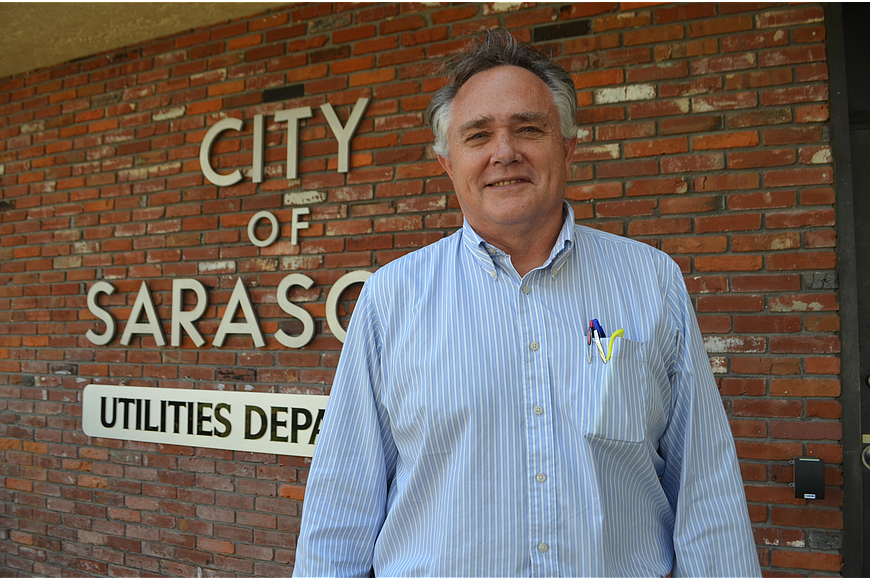- January 4, 2025
-
-
Loading

Loading

The city is set to increase its water and sewer utility rates by 3.5% in fiscal year 2020.
And another 3.5% in 2021.
And another 3.5% in 2022, 2023, 2024 and every year through 2030.
On Monday, in a 3-2 vote, the City Commission authorized a series of water and sewer rate increases from fiscal year 2020 through fiscal year 2030. City staff said the rate increases are necessary to fund $377 million in infrastructure improvements, including nearly $300 million in new spending identified in a recent master plan.
In a presentation to the commission, Utilities Director Bill Riebe framed the rate increases as a crucial part of a strategy for upgrading an aging system.
“Rates are going to go up,” Riebe said. “And if they don’t go up, the utility’s going to fail.”
For a resident who uses 4,000 gallons of water a month, city staff said the monthly water and sewer bill would go from $80.05 in fiscal year 2019 to $116.87 in fiscal year 2030. That represents an annual cost increase from $960.60 to $1,402.44 over the course of more than a decade.
Staff fielded questions from both officials and residents who expressed concern about the effects of higher utility bills. Resident Leroy Gomez said he understood the importance of protecting the city’s water and sewer systems, but he worried sustained rate increases would have an outsized effect on vulnerable populations.
“That’s not really fair to someone who’s on a limited income,” Gomez said.
Commissioners Shelli Freeland Eddie and Hagen Brody, who voted against the proposal, both asked whether it was possible to offset some of the costs of the infrastructure improvements with revenue generated by something other than user fees.
In fiscal year 2019, the city estimates it will raise $47.4 million from water and sewer bills, 97% of the total revenue the utility brings in. The city’s approval of the ordinance does not mandate a 3.5% annual rate increase, and Riebe said staff would look for opportunities to find money elsewhere for the identified infrastructure projects.
Still, he said it was difficult to obtain grants or other external funding sources for water and sewer projects. Mayor Liz Alpert said she hoped the rate increases wouldn’t be necessary, but she agreed with staff’s proposal to authorize them to ensure the city could fund infrastructure upgrades.
“If we can get other funding, great, but I don’t think that’s something we can count on,” Alpert said.
Vice Mayor Jen Ahearn-Koch and Commissioner Willie Shaw also voted in favor of authorizing the rate increases.
“I understand the concerns of the citizens, but we have no choice,” Ahearn-Koch said.
City staff attempted to assuage concerns about the significance of the proposed rate increases, noting it meets one measure of affordability the Environmental Protection Agency uses: projected average water and sewer expenses are less than 4.5% of median household income. City Manager Tom Barwin attempted to favorably compare the price of water and sewer utilities to the cost of cable television.
Although a majority of the commission voted in favor of the rate increases, some board members remained skeptical about the proposal.
“We haven’t raised rates since 2014,” Deputy City Manager Marlon Brown said.
“We’re making up for it now,” Freeland Eddie responded.